When amending policies, agencies need to listen to workers, because they are directly affected and sometimes have different perspectives from managers, according to union officials.
Mr. Dinh Sy Phuc, Chairman of the Trade Union of Taekwang Vina Company ( Dong Nai ), expressed his opinion at the Forum on building legal policies of the trade union for labor rights on the afternoon of November 30. The forum started one day before the opening session of the 13th Trade Union Congress (term 2023-2028).
Having worked as a union official for a company employing 31,000 workers for nearly 30 years, Mr. Phuc said that in the past, most workers had little knowledge of the law or did not pay much attention to current policies. However, the situation has gradually changed. For example, when the union sought opinions on the revised Law on Social Insurance, workers discussed and debated on options for withdrawing social insurance at one time.
"This is a good sign. When workers have spoken up about their rights, policy-making agencies need to pay attention so that the development and amendment of policies are more practical," said Mr. Phuc.
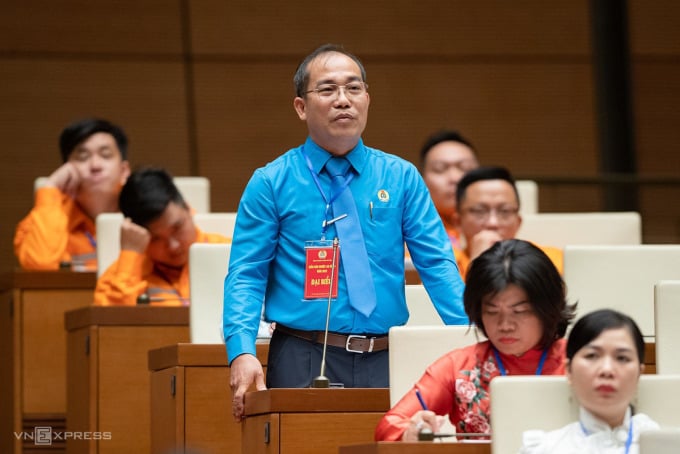
Mr. Dinh Sy Phuc, Chairman of the Taekwang Vina Company's Trade Union (Dong Nai) at the labor forum in July 2023 in Hanoi . Photo: Pham Thang
Mr. Phuc cited the experience of the Teakwang Vina union, which always utilizes all communication channels from social networks to direct dialogue with workers. When a new policy is issued or a draft law is proposed for amendment, leaders and unions go down to the production workshop to disseminate and answer questions for workers. The company has regulations on how many days to handle problems and leaders must directly participate. To date, the company has never had a strike.
The Chairman of the Taekwang Vina Company Union suggested that it is necessary to create more forums for direct dialogue with workers and laborers because they are affected and benefit from policies. Sometimes they have a practical perspective, different from managers. When collecting opinions, the parties should go to the places where workers live and work to record more quality comments.
Sharing the same view, Ms. Do Thi Bich Thuy, an expert in community mobilization, said that when amending bills, opinions must be sought from workers, experts, and affected parties. However, workers are always worried about making a living, and do not have time to go online to read documents or write comments. Therefore, when seeking opinions, trade unions at all levels should meet directly and focus on the interests that they care about.
Ms. Thuy suggested that Vietnam's trade unions should develop a nationwide networked data system, decentralized to each province. Grassroots trade union officials are authorized to directly update opinions from workers and how to resolve them. This data system will help the trade union system grasp the specific situation in order to promptly propose policy amendments.

Workers at Ty Hung Company, specializing in producing leather shoes for export, in Binh Tan District (HCMC) on their last working day after their labor contracts were terminated, December 2022. Photo: Chan Phuc
For the policy to be effectively implemented, Dr. Bui Sy Loi, former Vice Chairman of the National Assembly 's Social Committee, said that trade unions must participate and closely monitor from the beginning of the draft to the review stage, especially the amended laws directly related to labor such as the Law on Social Insurance, Employment, and the Labor Code. The most important thing is to directly solicit opinions from workers, and if necessary, invite more experts.
"Many current policies do not assess their impact, so they are difficult to implement when they are issued," he said, citing Article 60 of the Social Insurance Law passed by the National Assembly in 2015. The social security policy was considered a step forward, but was opposed by workers even before the law took effect. The National Assembly then had to issue Resolution 93 to withdraw social insurance at a time.
After seven years of implementation, the management agency is now having a "headache" over the situation of workers massively withdrawing their social insurance at one time. Whether to stop processing or continue to allow one-time withdrawals is being discussed by the National Assembly in the November session.
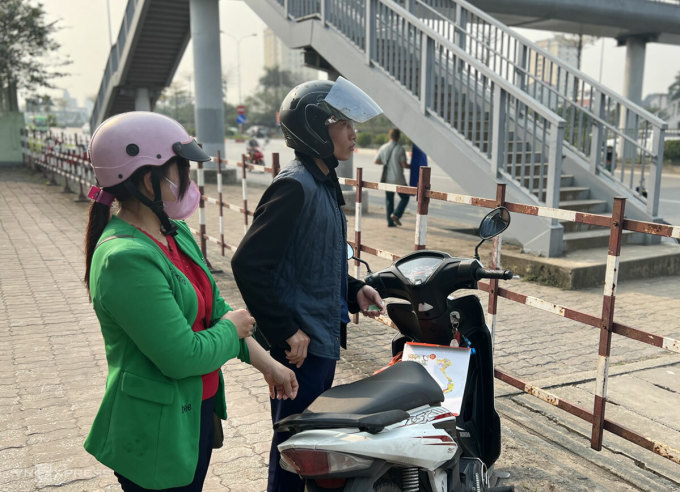
A couple from Lao Cai looking for work in Thang Long Industrial Park (Dong Anh, Hanoi), February 2023. Photo: Hong Chieu
Standing member of the National Assembly’s Social Committee Dinh Ngoc Quy affirmed that Vietnamese trade unions are participating in all stages of the law-making process. National Assembly agencies are open to receiving opinions from all groups affected by policies and are ready to dialogue and respond when necessary.
He gave an example of how when the Labor Code was passed in 2019, the health sector union complained a lot about overtime. But during the process of revising the bill, the Social Committee did not receive any comments from the health sector union on this issue. Meanwhile, in the maritime industry, department-level officials came to reflect on the characteristics of crew members working on ships. After discussion, this group was added to the provisions related to working hours and overtime conditions for special workers.
"If union members see any legal policy issues that need to be developed but are difficult to send to other agencies, they can directly send them to the Social Committee. We are always ready to receive them," he said.
The representative of the Social Committee suggested that the upper-level trade unions need to improve the capacity of their staff to be able to lead the grassroots trade unions. "The trade unions need to create more forums and ways to have direct dialogue as well as convey workers' opinions to policy-making agencies," said Mr. Quy.
The 13th Trade Union Congress (term 2023-2028) took place on December 1-3 with 1,100 delegates attending. The Congress will discuss three breakthroughs: Promoting dialogue and collective bargaining, focusing on wages, bonuses, working hours, rest hours, and occupational safety and hygiene; developing union members, establishing grassroots trade unions in non-state enterprises; and building a team of grassroots trade union chairmen to meet the tasks, especially in non-state enterprises.
Hong Chieu
Source link


![[Photo] Prime Minister Pham Minh Chinh attends a conference to review one year of deploying forces to participate in protecting security and order at the grassroots level.](https://vphoto.vietnam.vn/thumb/1200x675/vietnam/resource/IMAGE/2025/11/12/1762957553775_dsc-2379-jpg.webp)



![[Photo] Highways passing through Dong Nai](https://vphoto.vietnam.vn/thumb/1200x675/vietnam/resource/IMAGE/2025/11/12/1762940149627_ndo_br_1-resize-5756-jpg.webp)

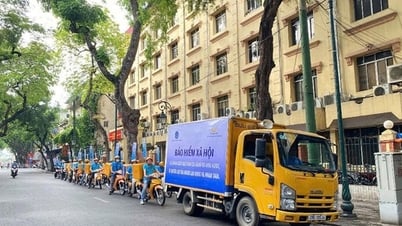

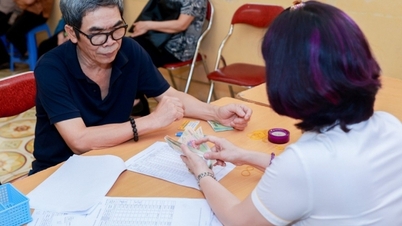











































































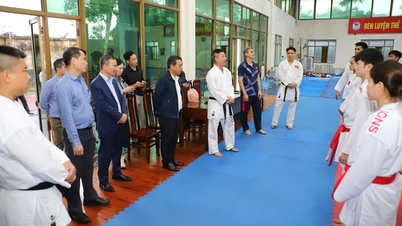




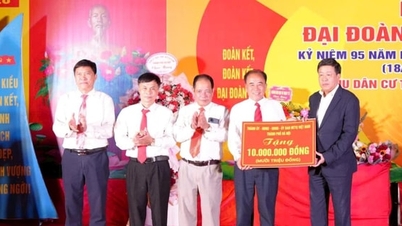
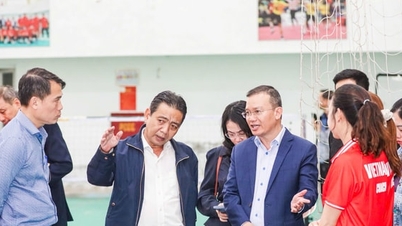









![Dong Nai OCOP transition: [Article 3] Linking tourism with OCOP product consumption](https://vphoto.vietnam.vn/thumb/402x226/vietnam/resource/IMAGE/2025/11/10/1762739199309_1324-2740-7_n-162543_981.jpeg)







Comment (0)